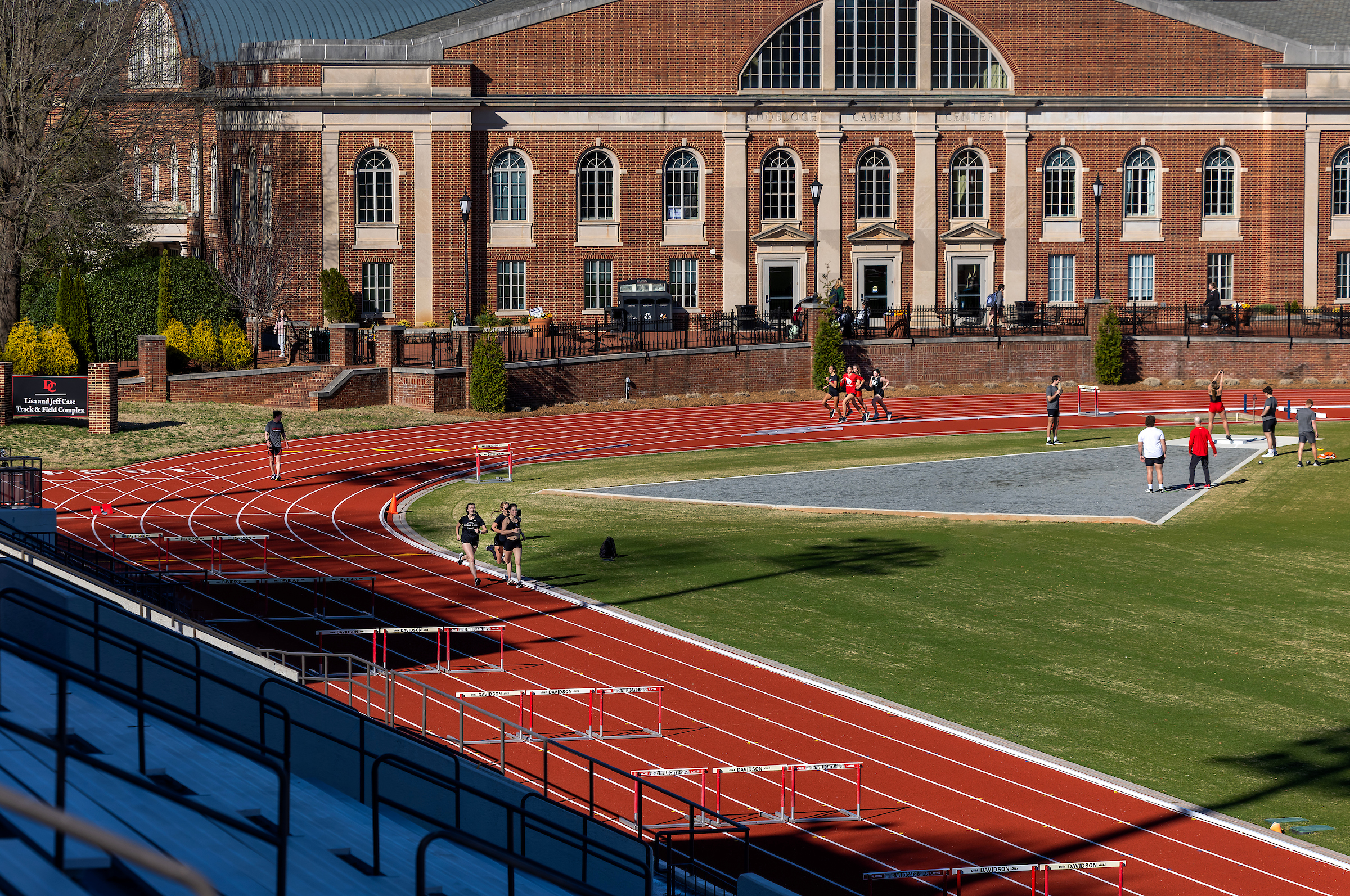Homegrown Ideas Take Root in the Classroom—and on The Farm
May 8, 2017
How can eating a locally grown carrot save the planet?
According to the Leopold Center for Sustainable Agriculture, the average carrot travels 1,838 miles before it reaches your plate. That's equivalent to driving from Davidson, North Carolina, to Butte, Montana, for a salad topper.
Food is not inherently regarded as an environmental issue in the minds of many people. But for some, sustainable food production is more than an emerging course of study–it's a passion.
Meet Aaron Schorsch and Amanda Green, both Davidson class of 2005 graduates.
"Food was a big part of my life at Davidson," Schorsch says.
As an undergraduate, he began cooking in the residence hall for himself and for friends like Amanda–providing a welcome and creative alternative to mandatory meal plans. That growing fascination with food preparation peaked during his Junior Year Abroad in Tours, France, where a delightful host mother heightened his appreciation for authentic French cooking. After graduation, Schorsch's year-long teaching assistantship with the French government paid dividends: he taught his students English; they taught him French cuisine.
Today, Schorsch cooks at Kindred restaurant, on Main Street in Davidson–ranked a "top 10" by Bon Appétit for its creative seasonal fare, sourcing from local farms and its appeal as "a casual southern restaurant that studied abroad." He's also promoting a new concept in food studies through "Saveur the Journey," an enterprise he created to lead small groups on in-depth, behind-the-scenes food education tours across Europe.
Green's early interest in food developed in ways more academic than experiential. After graduating from Davidson, she became active in the "slow food" movement, attending conferences in both Italy and Chicago. She later received a grant from the American Scandinavian Foundation to conduct an ethnography of the Sami people of the Scandinavia, who face declines in traditional culinary practices and language due to competition for land use with mining, timber and hydropower industries.
"The goal is to make sure food producers are treated fairly, food is grown sustainably and everyone is guaranteed fair access," Green said. "Engagement with food is a means for the Sami and others to sustainably confront these issues and remain in the place they want to be."
As the daughter of a Swedish mother and American father, Green was drawn to the study of indigenous languages. She received a master's degree in that field at the University of Chicago, and went on to earn a doctorate from Oregon State University (OSU) in food activism, where she developed an assessment of the OSU food system that led to large scale changes.
Full Circle
Now, a dozen years post-graduation, Schorsch and Green are married, and are back at Davidson–teaching students and townsfolk alike what they've learned on both sides of the Atlantic about the environmental importance of food as both an academic subject, and a dietary essential. Their shared philosophy is built on a solid foundation defined by the three pillars of food sustainability–financial, environmental and social.
Upon their return to Davidson last spring, they were delighted to discover a heightened awareness of food-related issues throughout the campus.
"It's interesting to see how the college has evolved in its relationship to food and farming," Green noted. "Dining services is now focused on being a really fabulous scratch kitchen, and sourcing from The Farm [at Davidson]. That was not a priority when we were students."
Thanks to grants from The Duke Endowment, which is also a primary funding agency for the college farm, Green is now teaching two courses each semester as part of the college's environmental studies curriculum.
The fall course, "Food and Sustainability," introduces students to The Farm at Davidson. It serves as prerequisite to a spring semester course, which engages students in the development of projects based on farm operations. The college's full-time farmer, Theresa Allen, helps to manage and direct explorations about how the farm can contribute to sustainable food production, be financially viable, bolster the local economy, and be made accessible to historically underserved people in the area. The course culminates in a presentation of findings to the community–and a thoughtful analysis that will inform the future functioning of the farm.
Professor of English Annie Merrill, director of the college's environmental studies department, lauds the ways the field has broadened beyond its traditional bounds. A plethora of issues and interests touch on food: vegetarian and vegan movements, government legislation and subsidies, organic agriculture, pesticides, health, waste production and prevention.
"People see it now as an issue of ethics and values," Merrill said. "In addition to its linkage to many fields of liberal studies, food has the advantage of being immediate and critical in our students' lives, which increasingly draws them to study it."
For her part, Green is pleased that consideration of food as a vital resource is being introduced in a wide variety of curricular disciplines at Davidson.
Schorsch is also happy that the town and college take seriously the study of food.
As Bon Appétit was quick to note, "One couple's vision of a better life has turned into the ultimate proof that, in fact, you can go home again."


